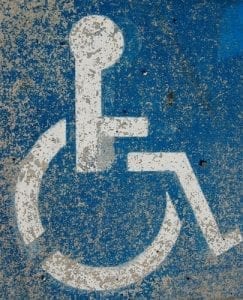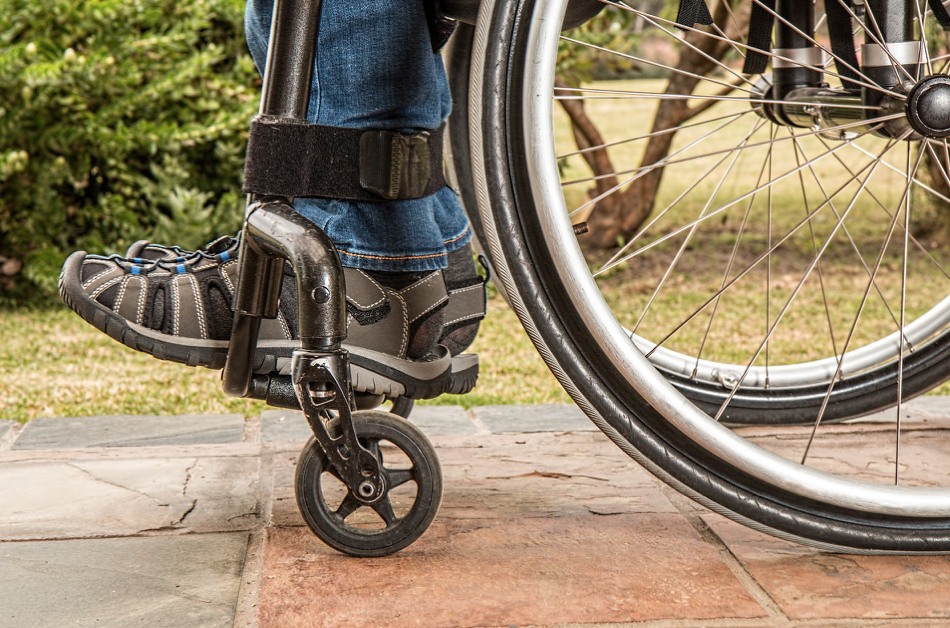Ali Ingersoll, a quadriplegic, recently won an insurance dispute over a wheelchair request that was originally denied.
Ali Ingersoll recently scored a win against Blue Cross Blue Shield of North Carolina over a wheelchair dispute and is now speaking out for change. Following a diving accident in 2010, Ingersoll became paralyzed from the chest down and only has limited mobility in her hands. As a result, she relies on a powered wheelchair to get around. Unfortunately, it also means she has had to spend years fighting with insurance to “get the equipment she needs to live.” As a financial day trader, she doesn’t qualify for Medicaid or Supplemental Security Income, so she relies on Blue Cross Blue Shield of North Carolina, one of the “few left in the state that still offer policies under the Affordable Care Act.”
What happened, though? What was the dispute between Ingersoll and the insurance company about? Well, it all had to do with a wheelchair. When it came time to replace her fully-powered wheelchair, Ingersoll requested insurance coverage to help pay for it, but the seat elevator, one of the wheelchair parts she relies on that raises and lowers the chair, was denied. Why? Well, the insurance company didn’t deem it medically necessary. Fortunately, Ingersoll appealed the decision and “sent in over 70 pages of documents from her general practitioner, physical therapist, and medical supplier to argue that it was necessary for her.”

However, the insurance company pushed back with the following response:
“Seat elevators for manually and power operated wheelchairs are considered not medically necessary…These items are considered a ‘convenience’ and not medically necessary in the sense that they do not serve a specific therapeutic purpose, even though they may contribute to a patient’s independence or ability to assist caretakers in transfers, repositioning, or other aspects of movement during the performance of assisted daily living activities.”
Ingersoll pushed back against the response, though, and argued the seat elevator was necessary because “it makes tasks like using household appliances and opening doors easier — and it can be dangerous if she has to lean over and risks falling out of her chair.” She said:
“When I’m alone, I can’t get up to my microwave to cook food, I can’t open my refrigerator door, I have to raise my seat elevator up to open the front door. I have a sink where I have to be elevated.”
Eventually, she sent her case to the N.C. Department of Insurance for further review and “included pictures of how she would use the equipment in her house.” She also sent letters to the Blue Cross NC CEO and contacted local news outlets. Additionally, she blasted her story all over Facebook, garnering support for her plight.
A few weeks later, she Blue Cross NC contacted her again to inform her that her request was being approved. The approval letter stated:
“This administrative decision is based on the individual merits of the specific case. This approval should not be considered a precedent for future or similar services.”
Ingersoll noted the victory left her with mixed emotions. On the one hand she was excited, but on the other, she was upset. She said, “What changed? I’m tenacious, I’m a pain. I’m pleasantly persistent. But it made me enraged.” She added that the entire incident left a bad taste in her mouth because it has become common for her and others to have to fight and “argue for the necessity of the equipment and push through multiple appeals and review processes.” She said:
“The challenge in the disabled community is that people don’t have time and a lot of people don’t have the family and supports to do that…I’m trying to shed light on the fact that people think that once they get a denial, that’s it. But that’s not true…When paying for insurance, who is to tell you what is necessary for you?”
For now, Ingersoll is working to raise awareness on the issue by writing and managing a blog on her Quirky Quad website in which she “often tells about her self-advocacy and gives advice to others.” “There are so many medical things in a day that sometimes it just takes all your energy to wake up in the morning. But I really just get pure joy when I see somebody win a battle,” she said.
Sources:
Quadriplegic Raleigh woman wins insurance battle for wheelchair, now fights for change


Join the conversation!